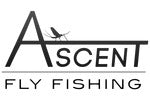
Fly Fishing with William Shakespeare - What's in a Name?
"A fly by any other name would fish as sweet." These words were penned by playwright and middling rod manufacturer, William Shakespeare, in a play about the forlorn love between the son of a fly fisherman and the daughter of a worm dunker. While this melancholy tale clearly illustrates the heartbreaking consequences of dating a bait fisherman or woman, the other takeaway is to not get fixated on the name of the fly and the invertebrate it is supposed to imitate.
While I would consider myself as big of a bug geek as any fly fisherman, we are all too often guilty of overcomplicating how we match the hatch. After years of study and decades with a fly rod in hand, I have come to the conclusion that trout indeed do not speak Latin and are in fact oblivious to the names of the patterns in our fly boxes. Sometimes, matching the hatch is as simple as observing what is flying, floating, drifting, and swimming, and getting close in size, profile, and color with your imitation, regardless of its name.
By momentarily forgetting the names of your flies and viewing your box through this simplistic lens, you will find that you are able to match more hatches with fewer patterns. Here are a few of my favorite crossover patterns:
Pattern: Thorax Caddis
Hatches Matched: Sizes 24 - 18 for Midges; Sizes 20 - 10 for Caddisflies, Sizes 14 - 10 for Stoneflies
Pattern: WD-40
Hatches Matched: Sizes 26 - 14 for Midge larva & pupa, Sizes 18 - 22 & trimmed down for Caddis larva, Sizes 22 - 12 for drifting Mayfly & Stonefly nymphs
Pattern:Amy's Ant
Hatches Matched: Sizes 18 - 12 for Ants, Sizes 18 - 6 for Beetles, Hoppers, & Stoneflies






